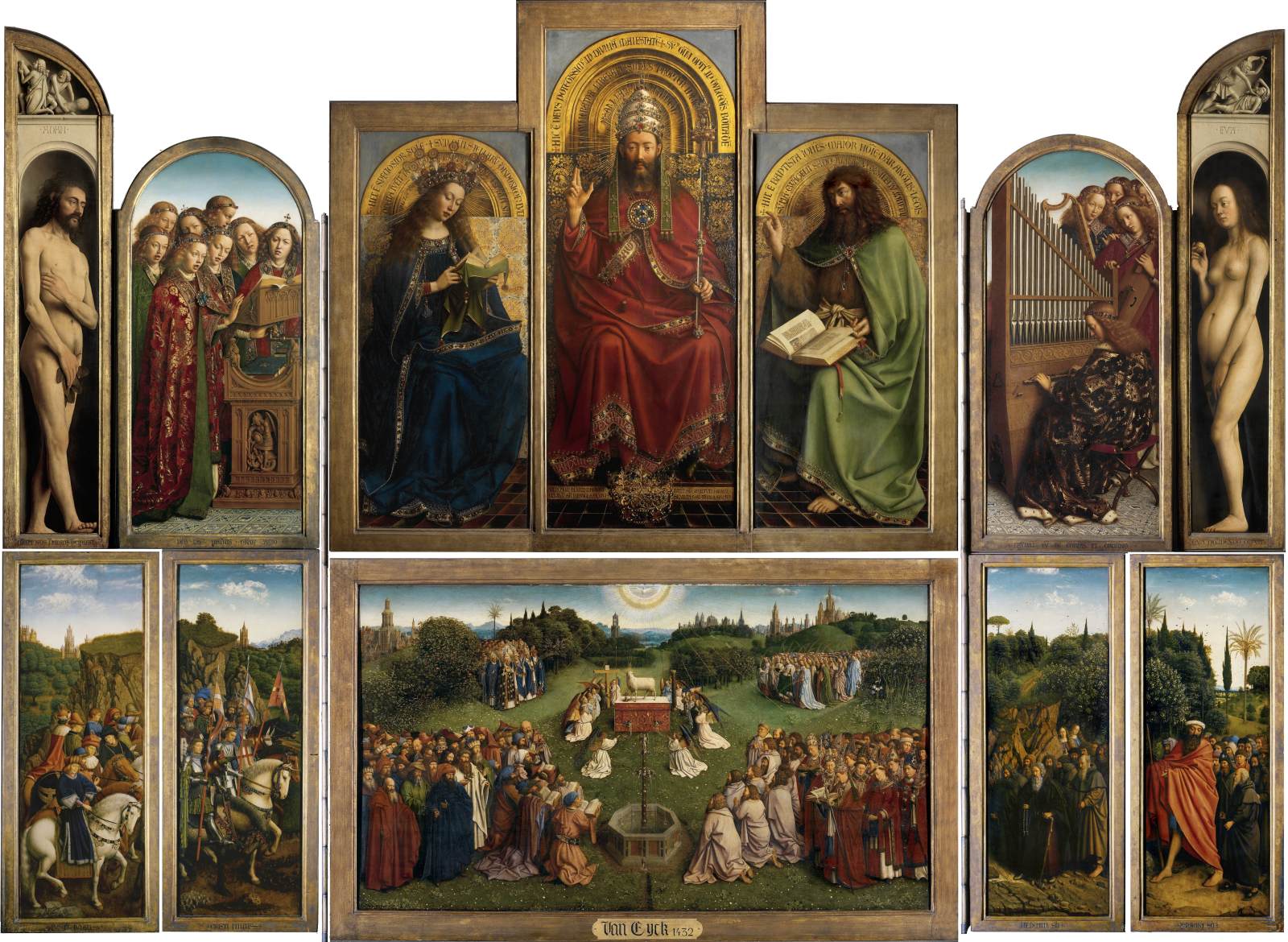
Catena Aurea by St. Thomas Aguinas
Mark CHAP. 3
3:31–35
31. There came then his brethren and his mother, and, standing without, sent unto him, calling him.
32. And the multitude sat about him, and they said unto him, Behold, thy mother and thy brethren without seek for thee.
33. And he answered them, saying, Who is my mother, or my brethren?
34. And he looked round about on them which sat about him, and said, Behold my mother and my brethren!
35. For whosoever shall do the will of God, the same is my brother, and my sister, and mother.
THEOPHYLACT. Because the relations of the Lord had come to seize upon Him, as if beside Himself, His mother, urged by the sympathy of her love, came to Him; wherefore it is said, And there came unto him his mother, and, standing without, sent unto him, calling him.
CHRYSOSTOM. (non occ.) From this it is manifest that His brethren and His mother were not always with Him; but because He was beloved by them, they come from reverence and affection, waiting without. Wherefore it goes on, And the multitude sat about him, &c.
BEDE. (ubi sup.) The brothers of the Lord must not be thought to be the sons of the ever-virgin Mary, as Helvidius sayp, nor the sons of Joseph by a former marriage, as some think, but rather they must be understood to be His relations.
PSEUDO-CHRYSOSTOM. (Vict. Ant. e Cat. in Marc.) But another Evangelist says, that His brethren did not believe on Him. With which this agrees, which says, that they sought Him, waiting without, and with this meaning the Lord does not mention them as relations. Wherefore it follows, And he answered them, saying, Who is my mother or my brethren? (John 7:5) But He does not here mention His mother and His brethren altogether with reproof, but to shew that a man must honour his own soul above all earthly kindred; wherefore this is fitly said to those who called Him to speak with His mother and relations, as if it were a more useful task than the teaching of salvation.
BEDE. (Ambr in Luc. 6, 36. Bede ubi sup.) Being asked therefore by a message to go out, He declines, not as though He refused the dutiful service of His mother, but to shew that He owes more to His Father’s mysteries than to His mother’s feelings. Nor does He rudely despise His brothers, but, preferring His spiritual work to fleshly relationship, He teaches us that religion is the bond of the heart rather than that of the body. Wherefore it goes on, And looking round about on them which sat about him, he said, Behold my mother and my brethren.
CHRYSOSTOM. (non occ.) By this, the Lord shews that we should honour those who are relations by faith rather than those who are relations by blood. A man indeed is made the mother of Jesus by preaching Himq; for He, as it were, brings forth the Lord, when he pours Him into the heart of his hearers.
PSEUDO-JEROME. But let us be assured that we are His brethren and His sisters, if we do the will of the Father; that we may be joint-heirs with Him, for He discerns us not by sex but by our deeds. Wherefore it goes on: Whosoever shall do the will of God, &c.
THEOPHYLACT. He does not therefore say this, as denying His mother, but as shewing that He is worthy of honour, not only because she bore Christ, but on account of her possessing every other virtue.
BEDE. (ubi sup.) But mystically, the mother and brother of Jesus means the synagogue, (from which according to the flesh He sprung,) and the Jewish people who, while the Saviour is teaching within, come to Him, and are not able to enter, because they cannot understand spiritual things. But the crowd eagerly enter, because when the Jews delayed, the Gentiles flocked to Christ; but His kindred, who stand without wishing to see the Lord, are the Jews who obstinately remained without, guarding the letter, and would rather compel the Lord to go forth to them to teach carnal things, than consent to enter in to learn spiritual things of Him. (Ambr in Luc. 6, 37.). If therefore not even His parents when standing without are acknowledged, how shall we be acknowledged, if we stand without? For the word is within and the light within.
